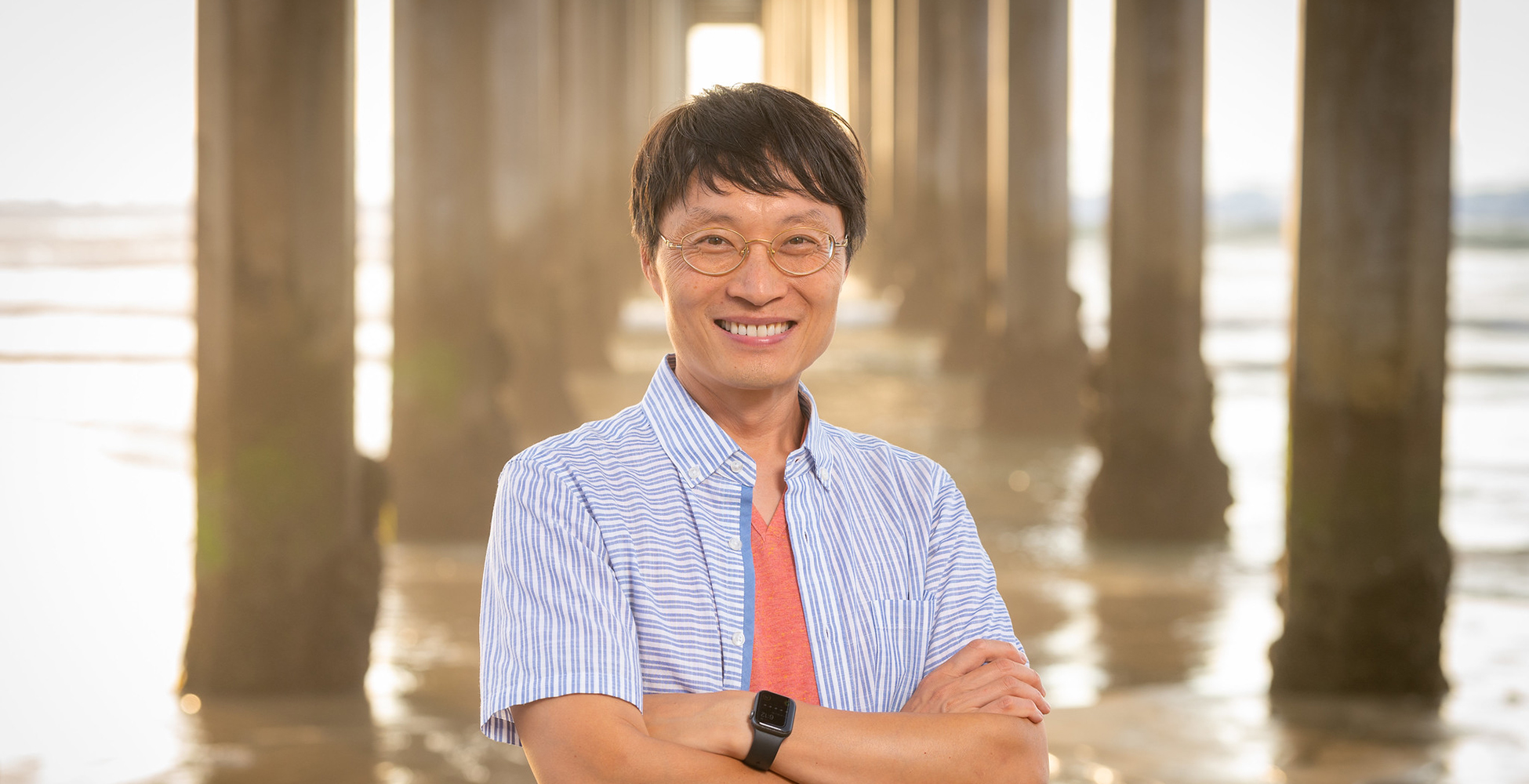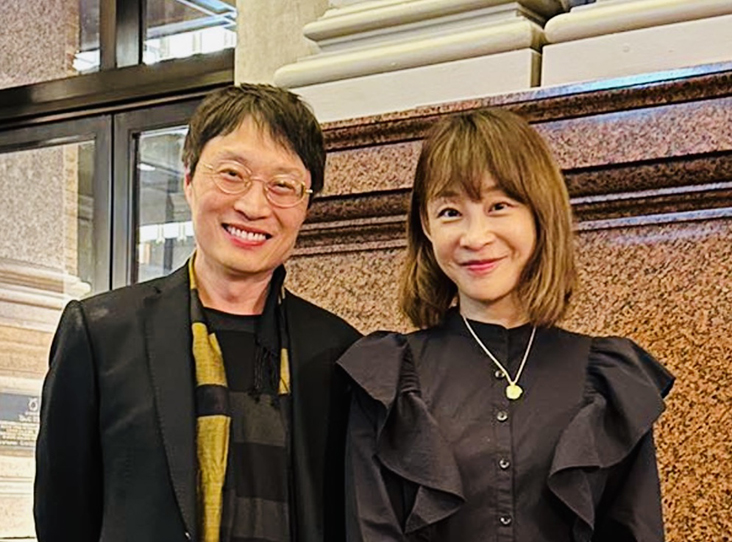Gift Launches Lei Lab at the UC San Diego Qualcomm Institute

With the goal of breaking barriers among music, visual arts, theater, engineering and oceanography, Boston-based philanthropist (Snow) Dan Qin has made a donation to create a residency for UC San Diego composer Lei Liang at the Qualcomm Institute (QI) at UC San Diego. The gift establishes the Lei Lab at QI.
“My passion is discovering new methodology that concretely ties the arts and sciences together in an imaginative way,” said Liang, who is QI Research Artist-in-Residence and Chancellor’s Distinguished Professor of Music at UC San Diego (Department of Music). “In the face of climate change, I believe we truly have to take a new approach to creative work. I couldn’t be more grateful for (Snow) Dan Qin’s support of this endeavor.”
Director of QI Ramesh Rao added, “(Snow) Dan Qin’s generosity is greatly appreciated. At QI, we believe in testing the boundaries of what is possible as we search for solutions to global problems. This gift helps expand the reach of Lei’s storytelling and inspirational performances, as well as enabling new projects and collaborations that will grow the possibilities of science, technology and art working together to change the world for the better.”
The gift will fund graduate students working with Liang at UC San Diego, as well as internships for undergraduates majoring in Interdisciplinary Computing and the Arts. “I’ve been wanting to work with undergraduates for a long time,” Liang said. “We can offer an innovative apprenticeship, and we certainly can use some help from them.”
In addition, thanks to the new gift, Liang will establish a presence at Berklee College of Music in Boston, which will allow him to mentor musicians in a conservatory environment. “I’m excited to bring the latest discoveries and completely new materials to the young composers at Berklee College,” he said. “Berklee, a preeminent conservatory for music that recently merged with Boston Conservatory, is the largest independent college of contemporary music in the world.”

Qin first heard Liang’s work in person at a performance of “Six Seasons” at UC San Diego last fall. The piece represents the culmination of a years-long collaboration between Liang and oceanographers at Scripps Institution of Oceanography. The composition draws its name from the seasons marked on a traditional Inuit calendar from Canada’s Nunavut Territory. Historically, these calendars have delineated seasons not by specific dates, but by landscape changes that dictate patterns of hunting and migration. “Six Seasons” captures these shifts by interweaving original music with audio recordings of the Arctic.
Liang’s recent activities have included hosting high school students from Alaska, near where some of the sounds in “Six Seasons” were recorded; delivering a keynote speech at a U.S. Environmental Protection Agency event; and hosting a performance in which musical ensemble “Dal Niente” premiered original compositions by graduate students in the “Hearing Extremes” seminar Liang taught this semester with UC San Diego oceanographer Joshua Jones and geologist Emily Chin.
Liang’s latest CD release with New Focus Recordings include two large-scale works, “Hearing Landscapes” and “Hearing Icescapes,” that span his 10-year affiliation with QI; “Six Seasons” will be released with New World Records June 23.
Current projects include: “Singing Earth,” which converts the fluorescence analysis of 188 minerals with elemental peaks into a chart of chords, with each mineral singing its own unique harmony; and the “Inaudible Ocean,” which reveals the complexity and richness of the ocean inaudible to human hearing.
For more information on the Lei Lab, see lei-lab.ucsd.edu. For more information on QI, see qi.ucsd.edu.